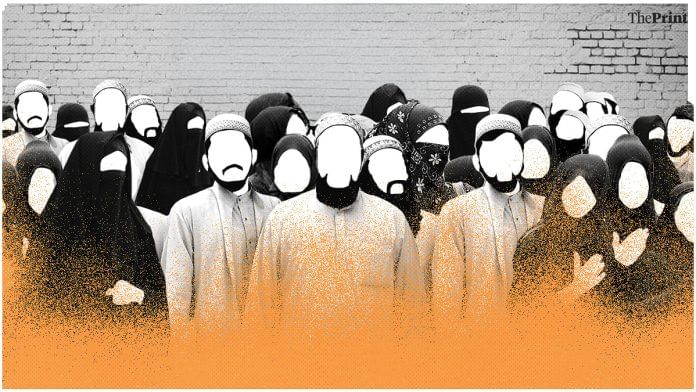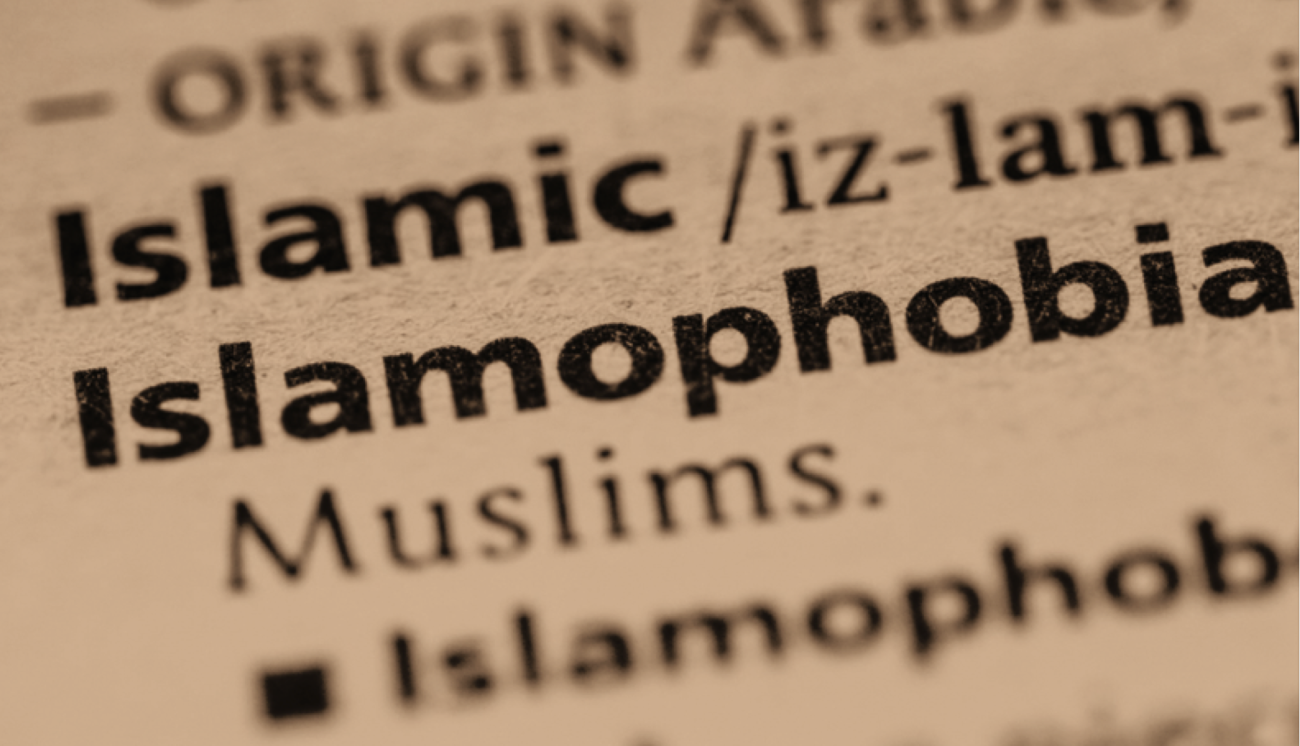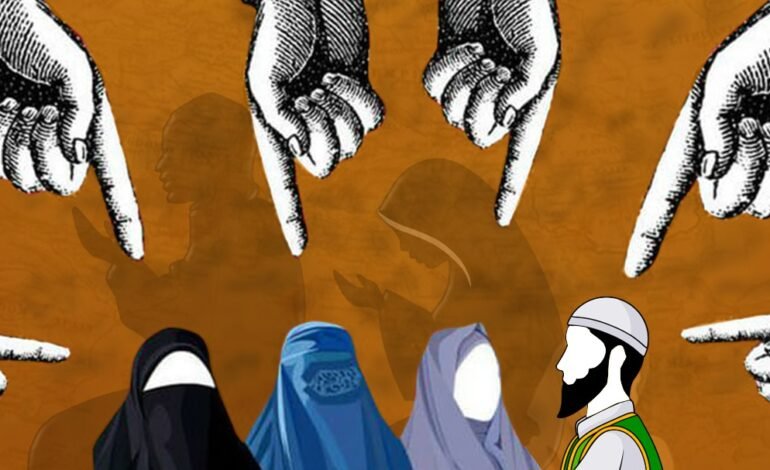– Ashar Amin
What is Islamophobia?
According to the encyclopedia Britannica, Islamophobia is “fear, hatred, and discrimination against practitioners of Islam or the Islamic religion as a whole.” The term appeared as “Islamophobia” in French literature in the early 20th century as a designation for anti-Muslim sentiments and policies and was popularized in English in the late 1990s. Islamophobia is a type of xenophobia or fear of foreigners or foreign things. Feeling estranged about a particular community results in xenophobia. Some scholars have argued that it shuld be considered synonymous with anti-Muslim racism since the effects of Islamophobia on the lives of individual Muslims and the attitudes of those holding Islamophobic views are closely comparable to those that result from racism.
Impact of Islamophobia
According to report published by ‘The Council on American-Islamic Relations’, there is 172% Spike in hate crimes against Muslims in America post two months of war on Gaza. Hate crimes more than doubled between 2014 and 2022, increasing by 7% from 2021 to 2022, the most recent year available in data collected by the FBI.
In India also hate crimes have spiked a lot in previous years. News agency ‘Reuters’ reported citing the website Hindutva Watch (a United States-based independent research project that documents hate crimes against religious minorities in India) Anti-Muslim hate speech in India rose by 62% in the second half of 2023 compared to the first six months of the year, a Washington-based research group said on February 26, 2024, adding the Israel-Gaza war played a key role in the last three months and there is surge in anti-Muslim violence too. Systematically Muslim places of worships are being targeted.

There is a marginalization of Muslims on a global level, just because they believe in one true God
Causes of Islamophobia
As we discussed, Islamophobia is a type of xenophobia, has its root in fear of foreign community. Atmosphere of fear towards community cannot be created unless a sense of estrangement is created about that specific community. In Indian context as less physical interaction results in more distance between the people, Media proves vital tool of interaction for people. In recent years media is effectively used to create distance and felling of estrangement for Muslims. This work is done on many levels.
Special Marginalization: Limit Muslims to specific area or ghetto. Riots and violence help limiting Muslims to specific location creating their ghettos which strengthens sense of estrangement or unfamiliarity.
Ghettoization: Sense of insecurity forces any community to create their separate political parties, markets, educational institutions etc.
It helps not only to make physical as well as mental distance from some community.
One of the effective methods to create mental distance is distortion of medieval history of India. Specific historical narrative that Muslims are foreign community or race. Muslim rulers of medieval era invaded India just for looting the wealth and the resources of the country. Films, press, Intellectuals’ efforts, Documentaries were used in recent years.
Raising questions about patriotism of Muslims is another method. Stating that Muslims are not patriots, they have nothing to do with growth and development of the country, increasing Muslim population is threat to the country, different concepts of self-defined “Jihads” which has no proof from Islamic scriptures help in widening the narrative.
Communalism has existed in Indian society, but it was based on social issues or political agendas, religious beliefs were never basis of conflict throughout the medieval history. But Islamophobia increases sense of displeasure as well as hate towards basic principles of Islam. Each argument on social media ends up insulting Islam and its beliefs. Europe’s tradition of relating Islam with terrorism is now new normal in India too. These trends of communalism and Islamophobia has made its roots deep in Indian majority.

Although, Islamophobia has become a grave reality of our times, our approach to counter it plays an important role in limiting its impacts
Solutions Against Islamophobia
The true question is what our reaction should be and how as a Muslim community we should address this situation. Before answering this question, we should determine our status as a community. Determining “What we are” is obligatory to decide our response to current situation of Islamophobia. If we would have been any ethnic or linguistic group, whose ethnic or linguistic identity is under attack then we would have chosen tactics which is called as “Identity Politics” in modern terminology. We would have taken this issue as identity conflict and would have asserted on our racial or linguistic identity and would have chosen the ways that had been used by blacks and indigenous people of America and South Africa. If it is a political problem, then the solution lies in making powerful front in terms of gaining political power. The above-mentioned steps are frequently presented as a possible solution. It could be part of the solution but not the complete solution.
But this issue is neither political nor ethnic. Our fundamental distinction is our Aqeedah (Belief). Quran has always used word “Millat”. Millat is way different than Qaum (Ethnic group). Race or Nation can be a group limited to some specific geographical boundaries, but Millat is defined on the basis of beliefs (Aqeedah). Millat is an ideological group. If we call Ummat a Qaum then by default, we get estranged from the communities living around us. Islamophobia is created by the feeling of estrangement and can be tackled by asserting the concept of Millat and Islam. Muslims are an ideological group and not an ethnic or racial group. Hence, there should be more propagation of Islamic teachings representing Islam as a solution for every single problem of the Indian society. This is the necessity of the current situation.
Islamophobia stands on the foundation of representing some community as a foreign community, more physical interaction with common people of Indian society can shorten the gap and the sense of estrangement towards Muslims too. Media is required when the information about certain religion is not available on ground, if we spread Islamic concepts then the hoax of media regarding Islamic teachings will automatically collapse and by Allah’s will the hatred against Islam and Muslims would start to fade away.

